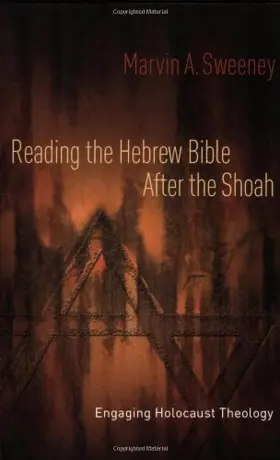

Reading the Hebrew Bible after the Shoah: Engaging Holocaust Theology
Pages
320
Publisher
Fortress Press
Published
10/1/2008
ISBN-13
9780800638498
Is theology possible after the Shoah? Marvin Sweeney challenges biblical theologians to take that question with utmost seriousness. Sweeney examines often ignored biblical texts where ancient Israel contemplated the problem of apparent divine absence and "divine evil," and finds the perspective of post-Holocaust theology an indispensable interpretive resource.
In biblical stories like those of Abraham, Moses, Jeroboam, Manasseh, Josiah, Isaiah, Ezekiel, Esther, Job, and more, Sweeney finds the recognition "that human beings cannot always depend upon God to act to ensure righteousness in the world." The insistence, common among Holocaust theologians, "that human beings must assume their own responsibility for doing justice and righteousness in the world is, Sweeney argues, powerfully present already in the Bible itself. This book is an important contribution to modern biblical theology and to Holocaust theology as well.
In biblical stories like those of Abraham, Moses, Jeroboam, Manasseh, Josiah, Isaiah, Ezekiel, Esther, Job, and more, Sweeney finds the recognition "that human beings cannot always depend upon God to act to ensure righteousness in the world." The insistence, common among Holocaust theologians, "that human beings must assume their own responsibility for doing justice and righteousness in the world is, Sweeney argues, powerfully present already in the Bible itself. This book is an important contribution to modern biblical theology and to Holocaust theology as well.
Reviews
This volume is a learned and searching investigation of theological claims central to the Hebrew Bible that in the author’s view have become deeply problematic in light of the Shoah, or Holocaust. The claims in question involve the power and justice of God, the guilt or innocence of the victims, and the ethical message to be inferred from God’s apparent silence and inaction in the face of the near-annihilation of European Jewry. Marvin A. Sweeney’s own approach seems to doubt God’s power and justice, vigorously upholds the innocence of the victims and thus the outrageousness of God’s failure to act, and argues that “the problems posed by the Shoah call for human beings to take on greater responsibility for the sanctity, well-being, and fundamental justice of the world in which we live” (22). After introducing his subject, Sweeney provides a succinct survey of the responses to the Shoah in a range of Jewish theologians who do not work in the critical study of the Hebrew, followed by a briefer discussion of the failure of the highly influential Christian biblical theologians, Walther Eichrodt and Gerhard von Rad, to face the challenge of the Shoah. The failure appears all the worse today, he shows, in light of the subsequent explosion of interest, on the part of both Jewish and Gentile scholars, not only in the Shoah itself but also in the role of anti-Judaism in Christian theology.
[Full Review]
